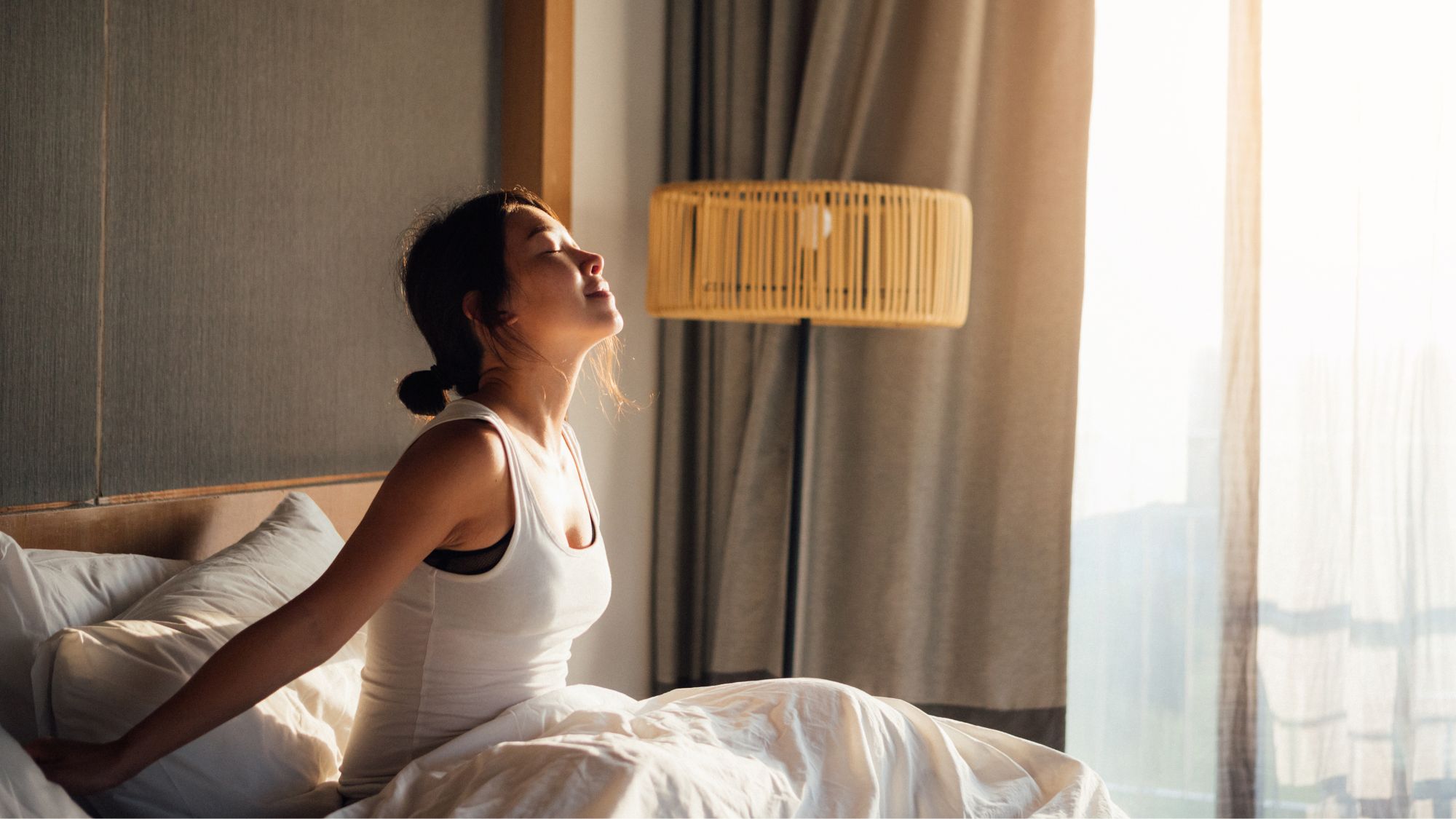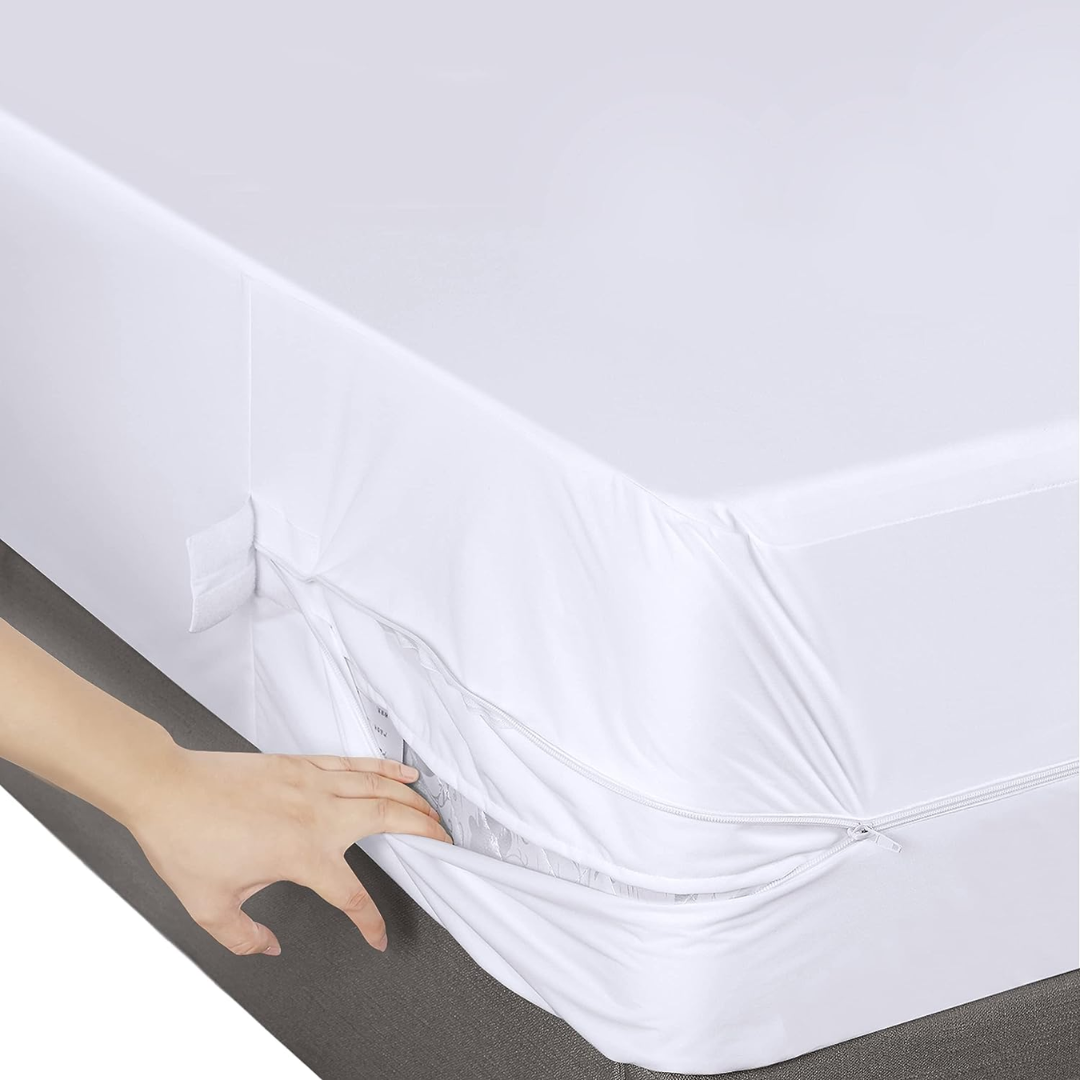Bedbug infestations are up 65% in the UK - 5 simple steps to avoid getting them
Plus, why climate change might be to blame.

By now, you'll likely have seen the news: fears are rising as an outbreak of bedbugs appears to be swarming Paris.
Many Paris residents have taken to social media to share sightings of the critters in cinemas, on public transport, and even in their own homes. Just last week, there were 37 official reported sightings on trains in the city and twelve reported sightings on the metro, according to reports.
While residents maintain that the blood-sucking bugs have been crawling the city for many years, officials reassure that hat they will have the outbreak in check before next year's Olympic Games.
And they're not just in France, either - pest control company Rentokil has reported that bedbug cases are up 65% in the UK year on year.
Interestingly, climate change may be to blame for the outbreak, with professors indicating that warmer temperatures are providing the perfect breeding grounds for the critters.
Wondering what the tiny creatures actually are and how to avoid bedbugs, if they do make their way to London? All valid concerns, which is why we've asked Ian Budd, a pharmacist at Chemist4U, to share their take.
How to avoid bed bugs: your guide
What are bedbugs?
In short, bedbugs are tiny creatures that infest your bed and suck your blood when you sleep. Yep - the thought of them alone is enough to make your skin crawl.
Marie Claire Newsletter
Celebrity news, beauty, fashion advice, and fascinating features, delivered straight to your inbox!
Budd explains. "Bedbugs are small insects that can be found lurking in your bedding, furniture, or even your clothing."
Wondering what they actually look like or how to identify one? Good question. "They’re normally around half a centimetre long and can look brown, yellow, or red if you can manage to spot one," he continues.
Getting their namesake by inhabiting warm areas, preferably mattresses, bedding and carpets, bed bugs bite and suck human blood, sometimes leaving red, itchy bite marks. "If you’re dealing with a bedbug infestation, you’ll normally notice groups of red, raised, itchy bite marks on your skin when you wake up in the morning," shares Budd. "You may also notice small spots of blood or dots of brown insect poo in your bedding."
While they aren’t dangerous, bedbugs are easily spread, difficult to remove and frankly just extremely irritating. The most common misconception about bed bugs is that they are related to sleep hygiene, when actually bed bugs aren't picky about where they set up camp and are just as likely to infest a clean bed as they are a dirty one.

If you're worried about a bedbug invasion, we'd highly recommend this waterproof mattress cover to help protect your bedding. It has deep-fitted pockets for maximum coverage, and also helps to protect your mattress from spills.
What do bedbugs look like?
Bedbugs could best be compared to an apple seed. They're about 5mm in size, flat, oval-shaped and browny-reddy coloured. They cannot fly but crawl around at night when most active, shedding their shells as they move.
How do you get bedbugs?
Bedbugs can be easily spread and transported in luggage. Because of this, bed bugs are often picked up in hotels and hostels before being brought home, where they make themselves comfortable and inhabit beds, carpets, furniture and clothes. They can also be picked up through second-hand furniture.
How will you know you've got bed bugs, you ask? There are a few signs to look out for:
- Potential bite marks
- Remnants of shells
- Residue bed bug excrement
- Spots of blood on bedding from squashed bugs
- A musty smell in your room.
Do bedbugs transmit disease?
Bedbugs are not known to spread disease. They can however be extremely irritating and if overly scratched can lead to bacterial infections.
Budd reassures: "Bedbug bites are usually harmless and can be treated simply by keeping the affected area clean and trying not to scratch. However, if your bites are particularly sore or irritating you may want to try an antihistamine cream or a mild steroid cream to relieve your symptoms."
In rare cases, bedbug bites can cause severe allergic reactions, he continues. "Make sure to act fast and seek immediate medical attention if you think this may be happening to you or someone in your home."
@drspf ♬ Hotel - Lawsy
How to treat bedbug bites?
Like mosquito bites, they should fade within a week but it’s important to resist irritating the marks. Avoid scratching where possible and keep the bumps as clean as you can.
Anti-itching cream, antihistamines and ice packs can all help the urge to itch your bites or antiseptic creams should be used in the off chance marks become infected.
How do you get rid of bedbugs?
Getting rid of bedbugs is difficult and will require a total overhaul: household items such as bedding, curtains, clothes, stuffed animals and shoes all need to be washed and dried on high heat.
Next, carpets, furniture and bedding all need to be hoovered and hoover contents disposed of immediately, while infested mattresses may need to be disposed of.
Often, bedbug exterminators are the best answer as the insects can survive for a year without blood.
@morethancleaning ♬ Cheers - New Rules
How to avoid bedbugs?
The best way to reduce your chances of getting bed bugs is:
- Frequently check your own items.
- Inspect clothing seams and bedding
- Keep your house clean, hoovering and washing bed sheets often
- When travelling, check mattresses and beds when you first check-in
- Try to keep the suitcase away from your bed, either in a luggage holder provided by the room, a wardrobe or a bathroom.
Should I go to the doctor about bedbugs?
You shouldn’t need to contact a doctor about bed bugs, but if you need help identifying your bites or if your bites get infected and become painful, talk to your GP.
You should, however, contact your local council, according to the expert. "If you think you have bedbugs, the best thing you can do is contact your local council or a pest control service so they can take care of the infestation entirely," Ian Budd, a pharmacist at Chemist4U, stresses.

Ally Head is Marie Claire UK's Senior Health and Sustainability Editor, nine-time marathoner, and Boston Qualifying runner. Day-to-day, she heads up all strategy for her pillars, working across commissioning, features, and e-commerce, reporting on the latest health updates, writing the must-read wellness content, and rounding up the genuinely sustainable and squat-proof gym leggings worth *adding to basket*. She also spearheads the brand's annual Women in Sport covers, interviewing and shooting the likes of Mary Earps, Millie Bright, Daryll Neita, and Lavaia Nielsen. She's won a BSME for her sustainability work, regularly hosts panels and presents for events like the Sustainability Awards, and is a stickler for a strong stat, too, seeing over nine million total impressions on the January 2023 Wellness Issue she oversaw. Follow Ally on Instagram for more or get in touch.
-
 How Ben Affleck feels about dating after his divorce from Jennifer Lopez
How Ben Affleck feels about dating after his divorce from Jennifer LopezHe's taking it slow
By Iris Goldsztajn
-
 Dior travels to Kyoto for a cherry blossom-inspired fashion show
Dior travels to Kyoto for a cherry blossom-inspired fashion showHere's everything you need to know
By Clementina Jackson
-
 Prince Harry's calls and letters to King Charles 'go unanswered,' source claims
Prince Harry's calls and letters to King Charles 'go unanswered,' source claimsThings aren't looking up between the royals
By Iris Goldsztajn